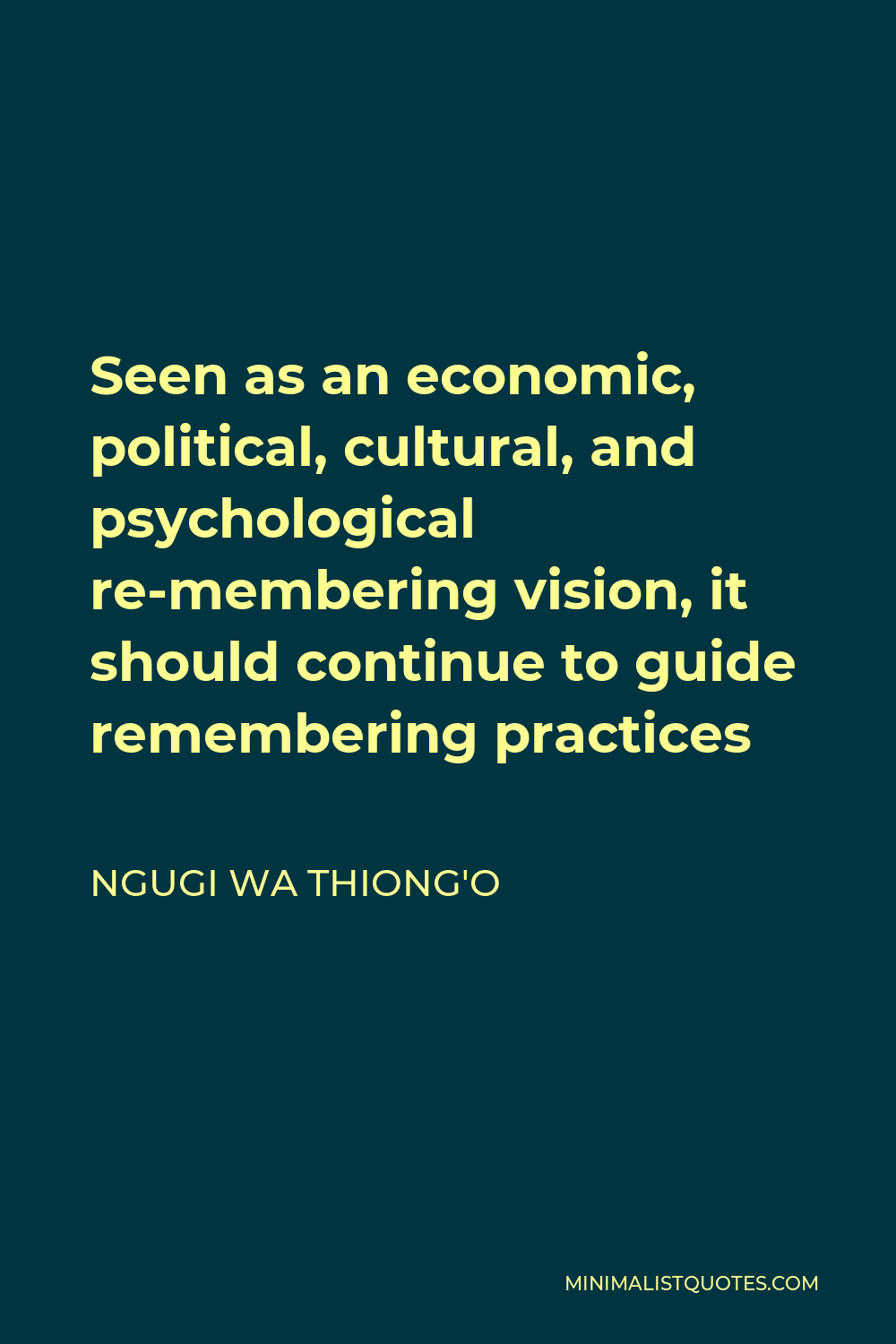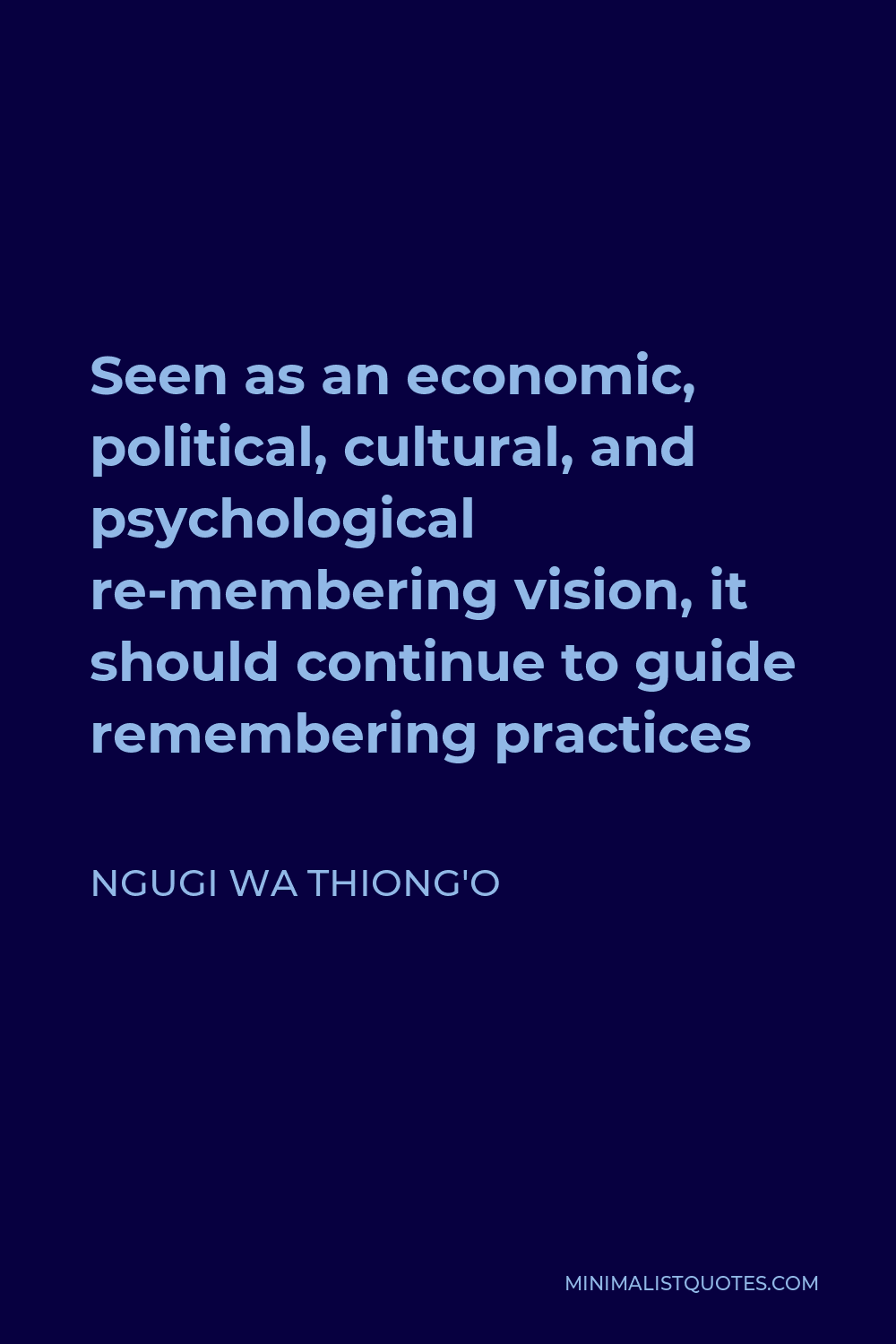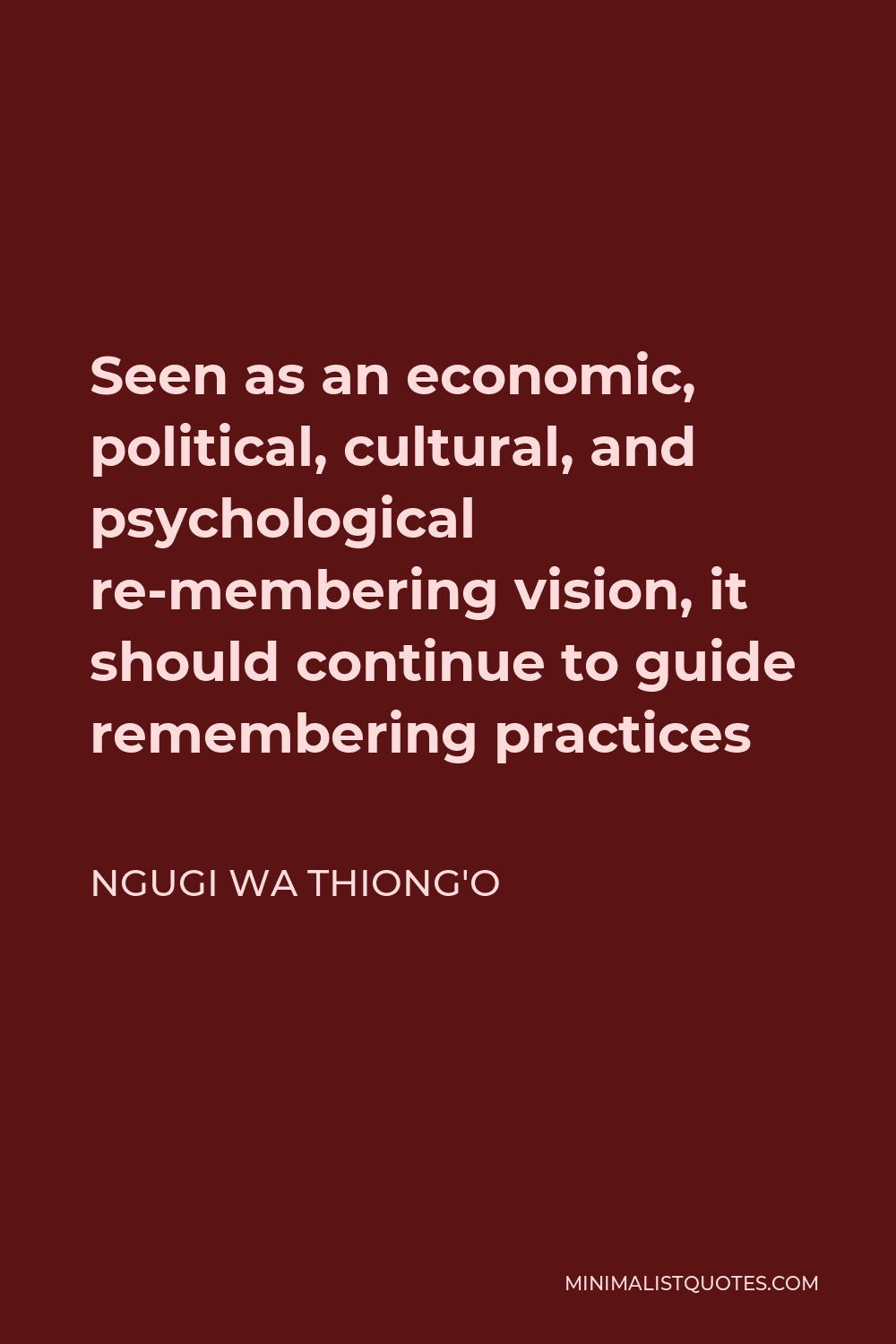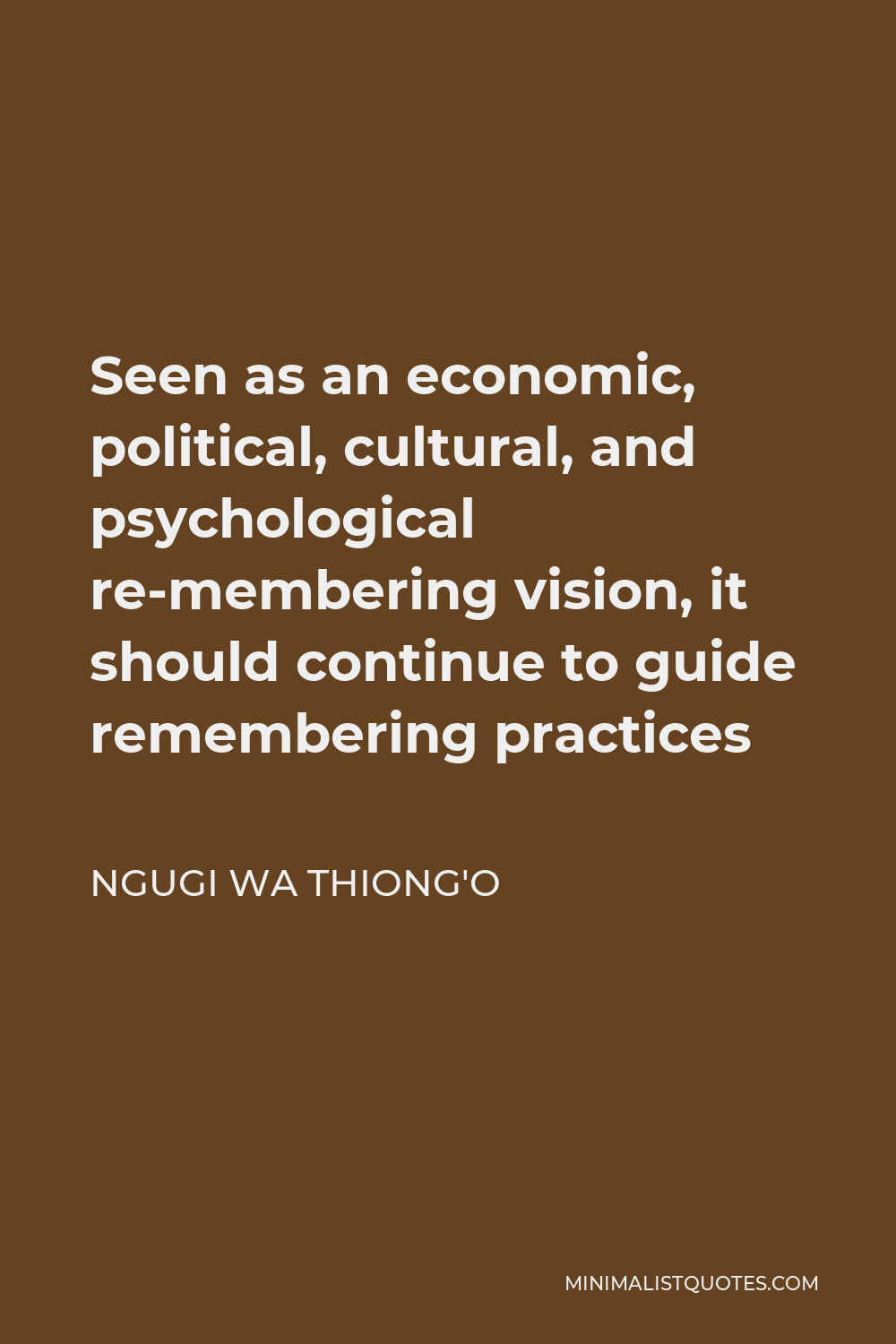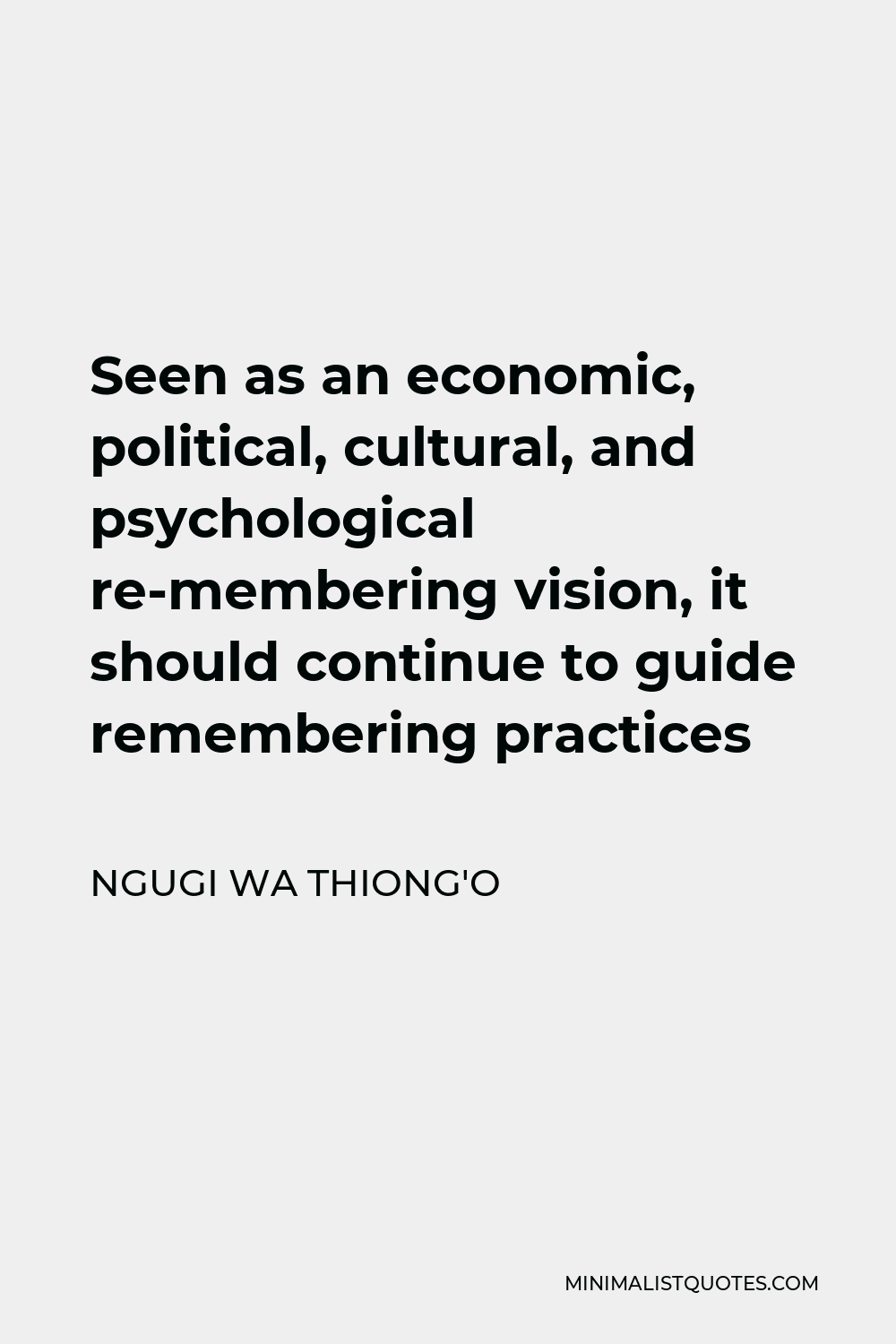What is translated from English and into English – and in what quantities – is a question of power.
NGUGI WA THIONG'OSeen as an economic, political, cultural, and psychological re-membering vision, it should continue to guide remembering practices
More Ngugi wa Thiong'o Quotes
-





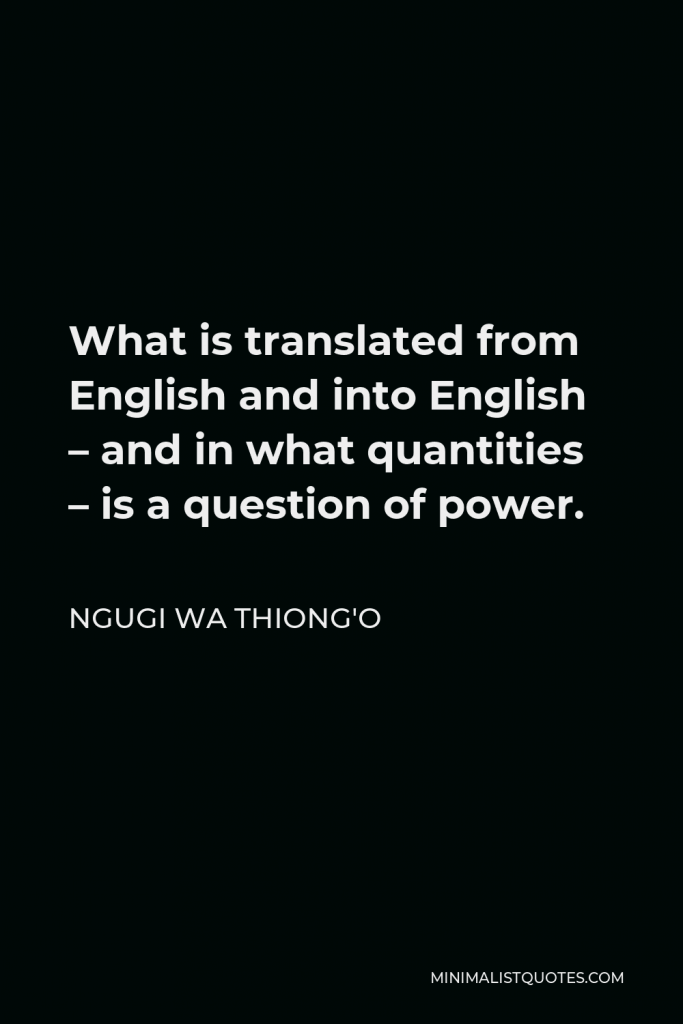

-





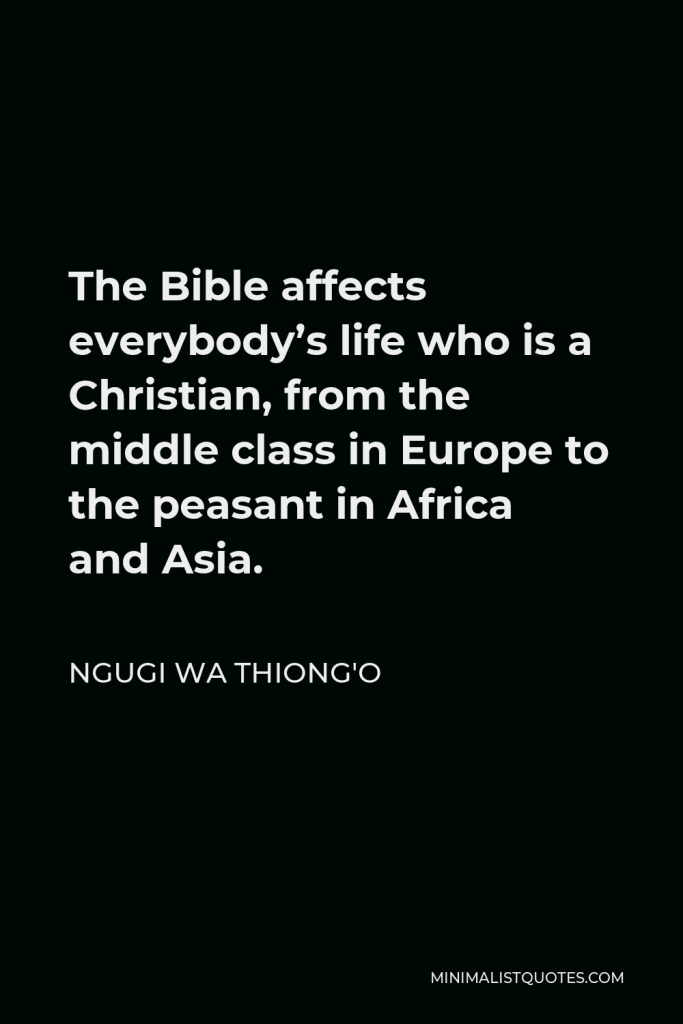

The Bible affects everybody’s life who is a Christian, from the middle class in Europe to the peasant in Africa and Asia.
NGUGI WA THIONG'O -





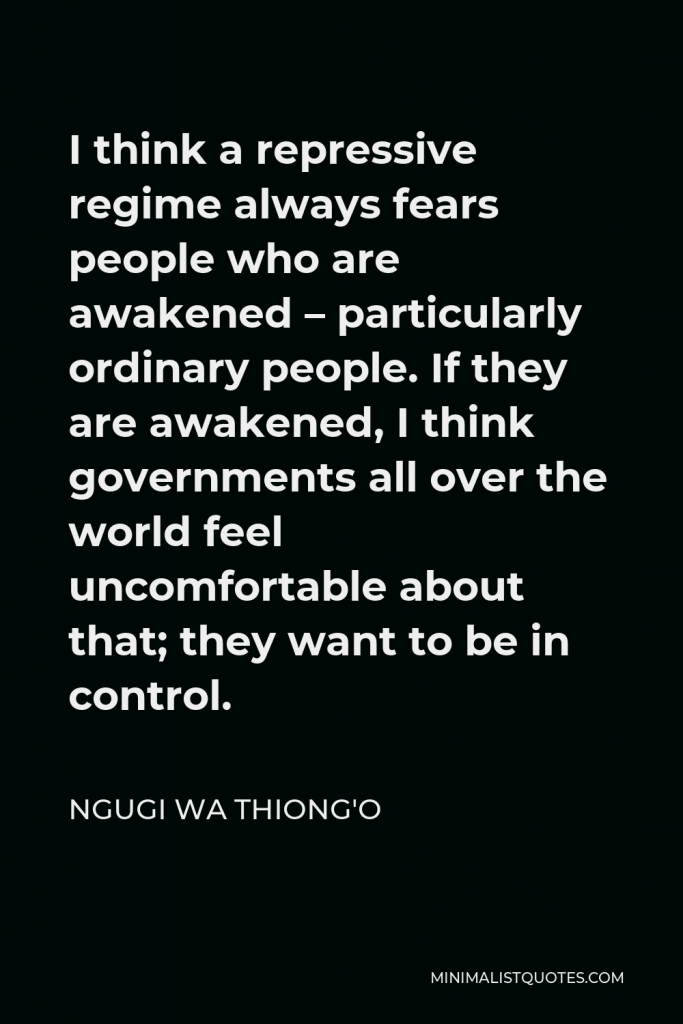

I think a repressive regime always fears people who are awakened – particularly ordinary people. If they are awakened, I think governments all over the world feel uncomfortable about that; they want to be in control.
NGUGI WA THIONG'O -





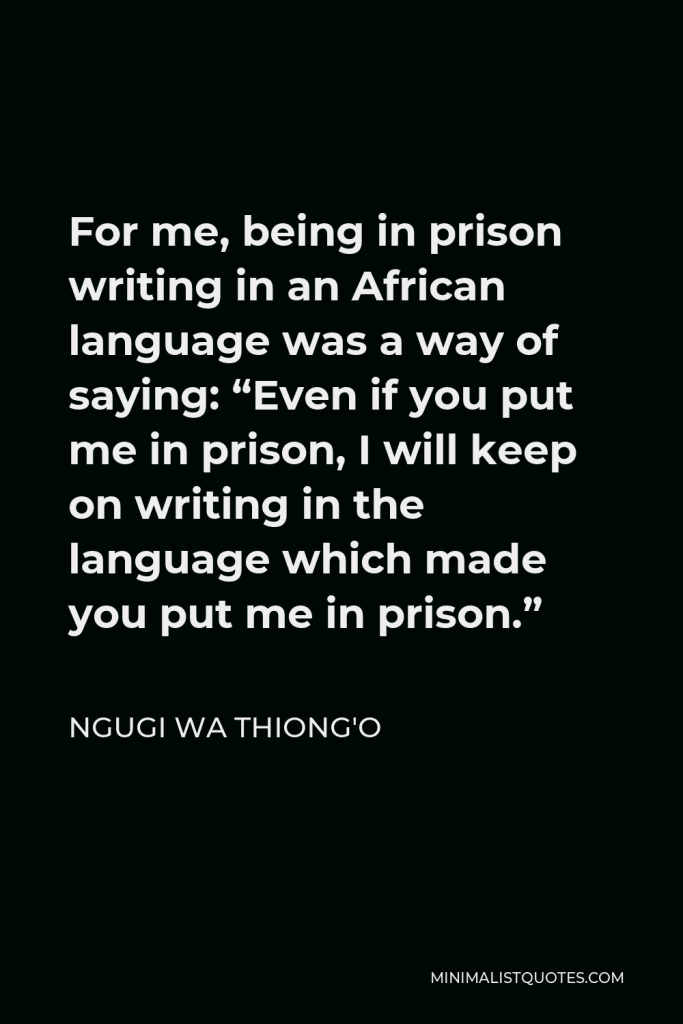

For me, being in prison writing in an African language was a way of saying: “Even if you put me in prison, I will keep on writing in the language which made you put me in prison.”
NGUGI WA THIONG'O -





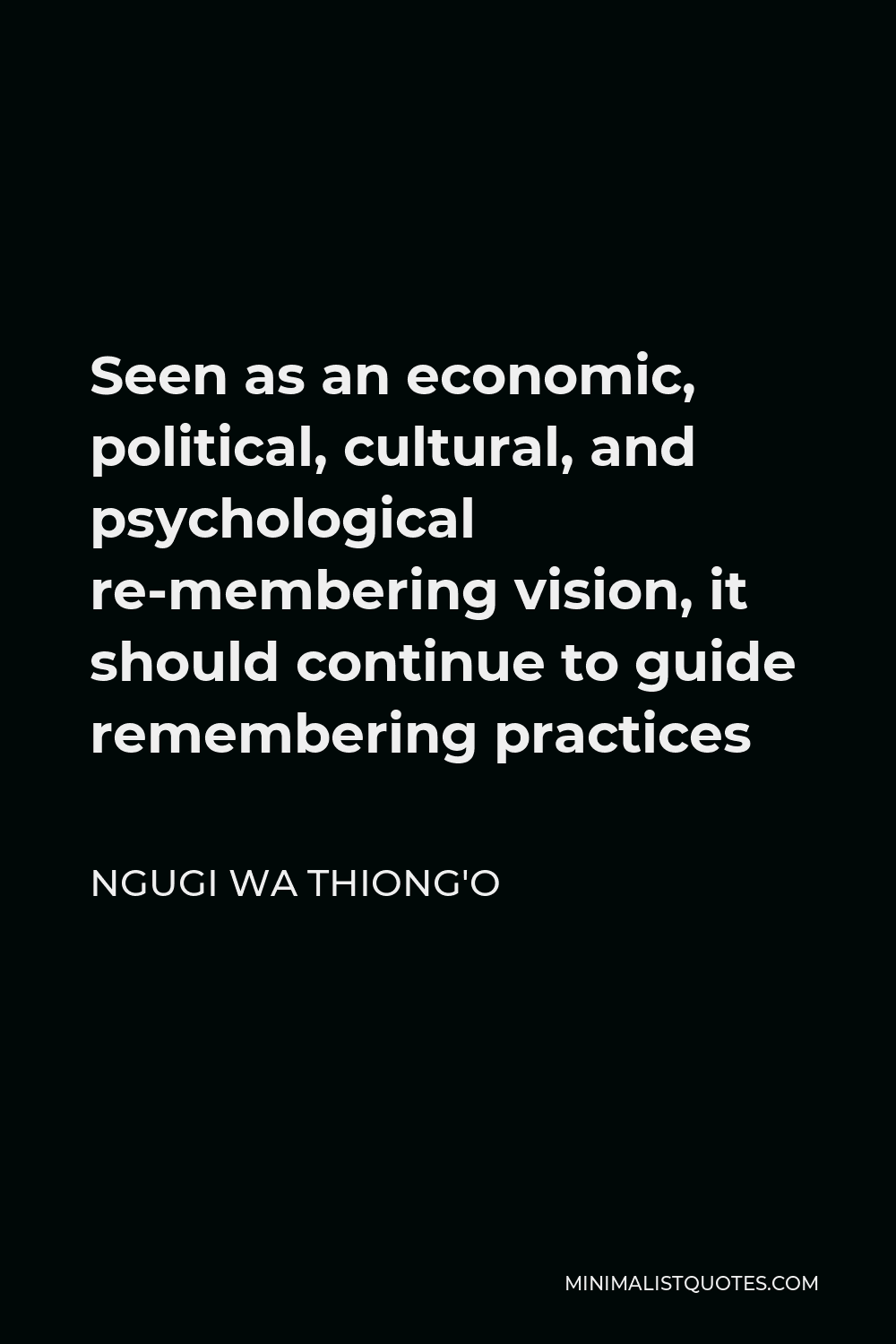
Seen as an economic, political, cultural, and psychological re-membering vision, it should continue to guide remembering practices
NGUGI WA THIONG'O -





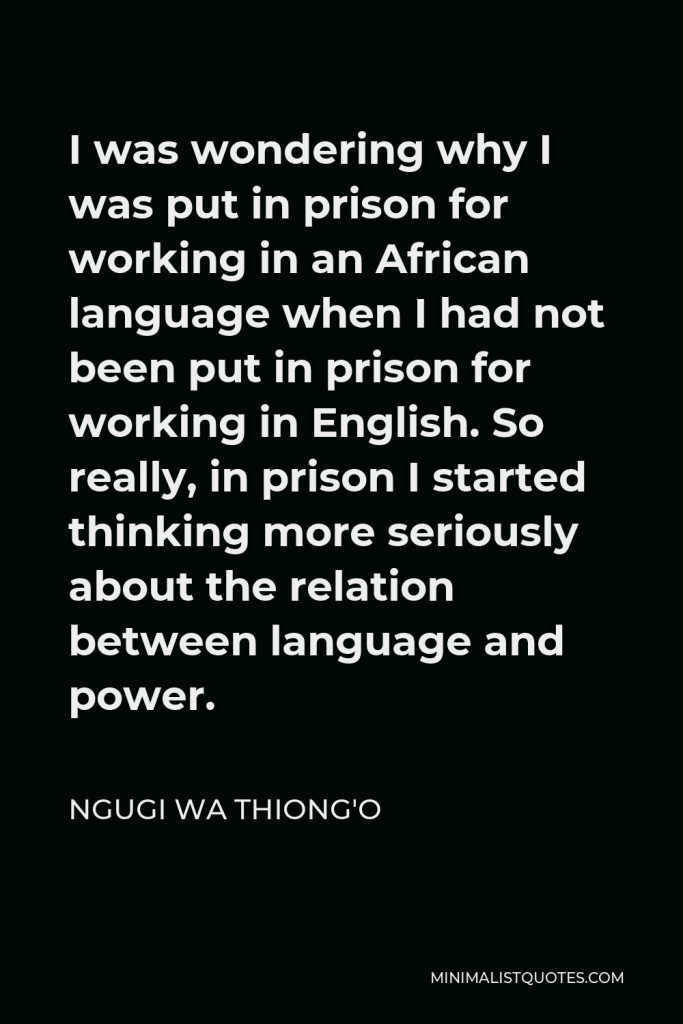

I was wondering why I was put in prison for working in an African language when I had not been put in prison for working in English. So really, in prison I started thinking more seriously about the relation between language and power.
NGUGI WA THIONG'O -





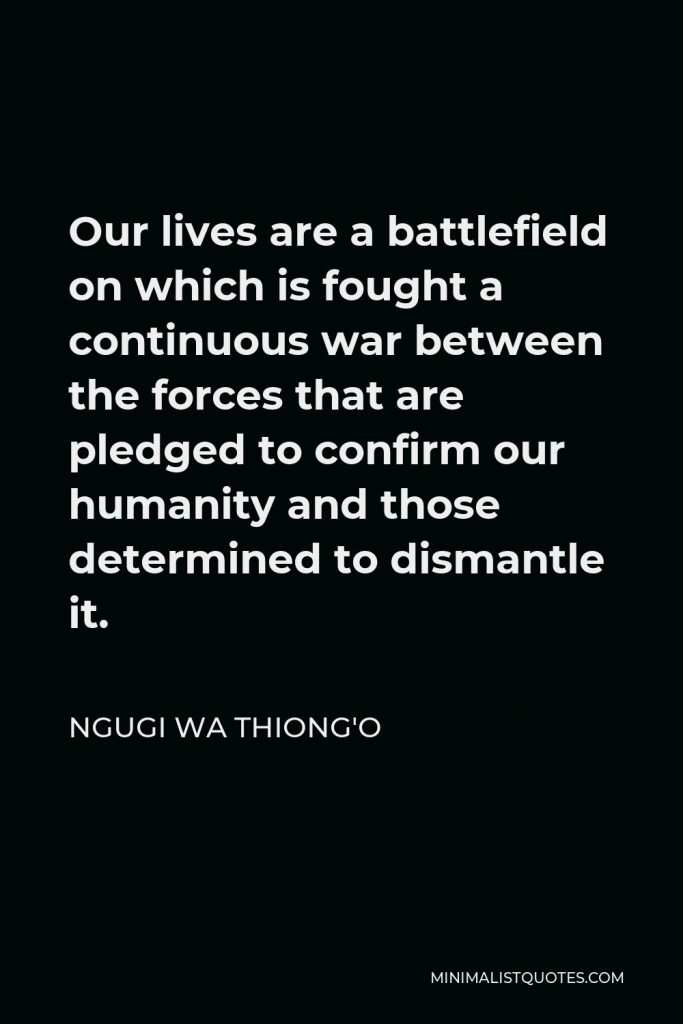

Our lives are a battlefield on which is fought a continuous war between the forces that are pledged to confirm our humanity and those determined to dismantle it.
NGUGI WA THIONG'O -





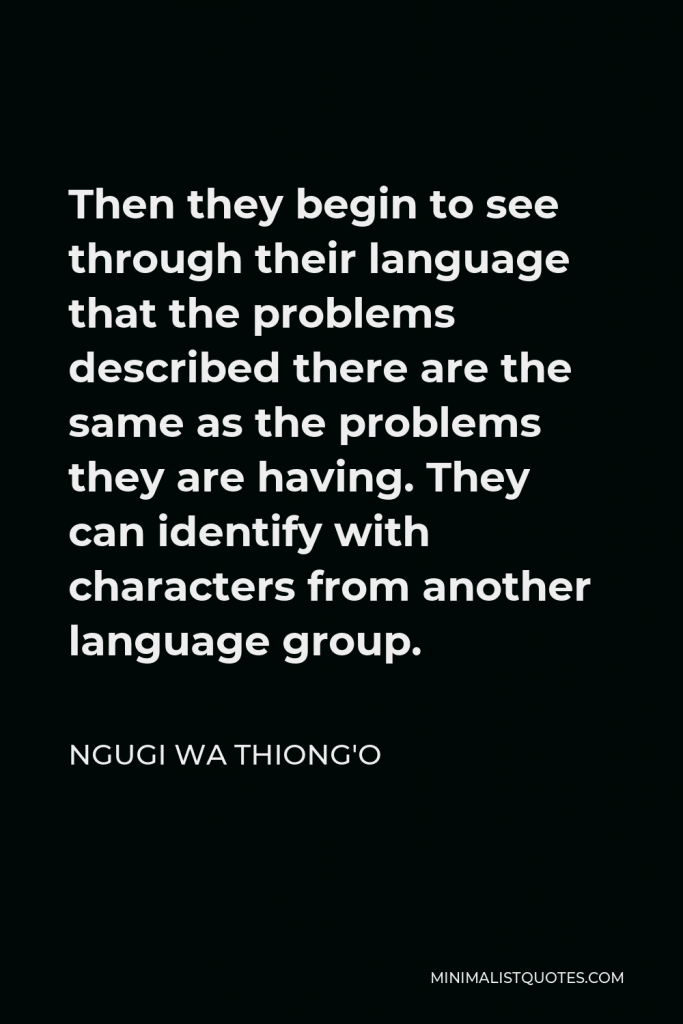

Then they begin to see through their language that the problems described there are the same as the problems they are having. They can identify with characters from another language group.
NGUGI WA THIONG'O -





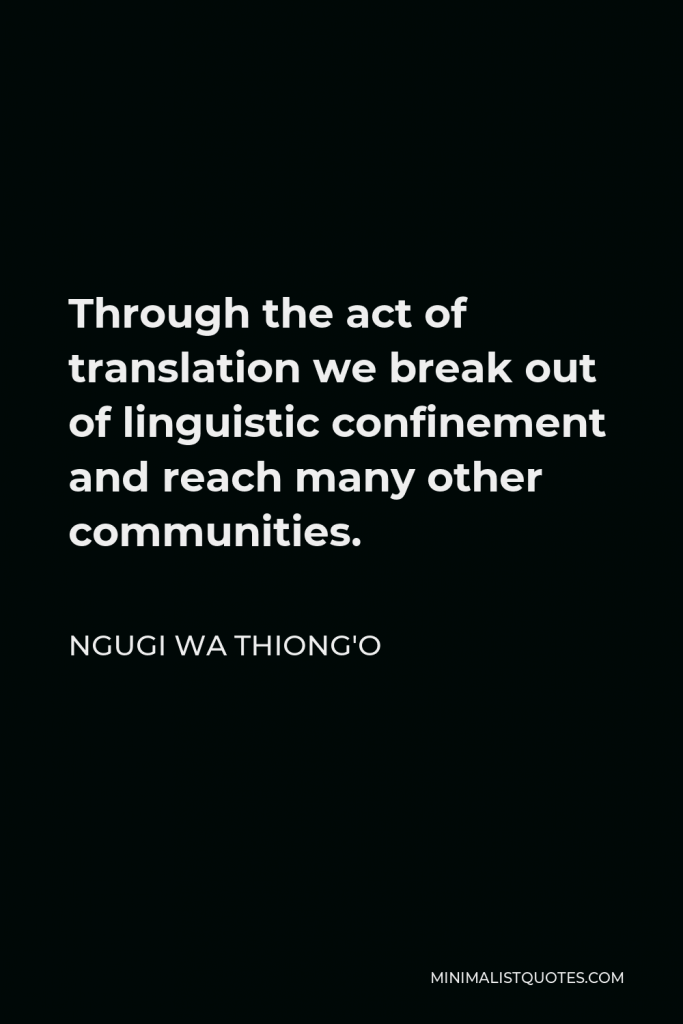

Through the act of translation we break out of linguistic confinement and reach many other communities.
NGUGI WA THIONG'O -





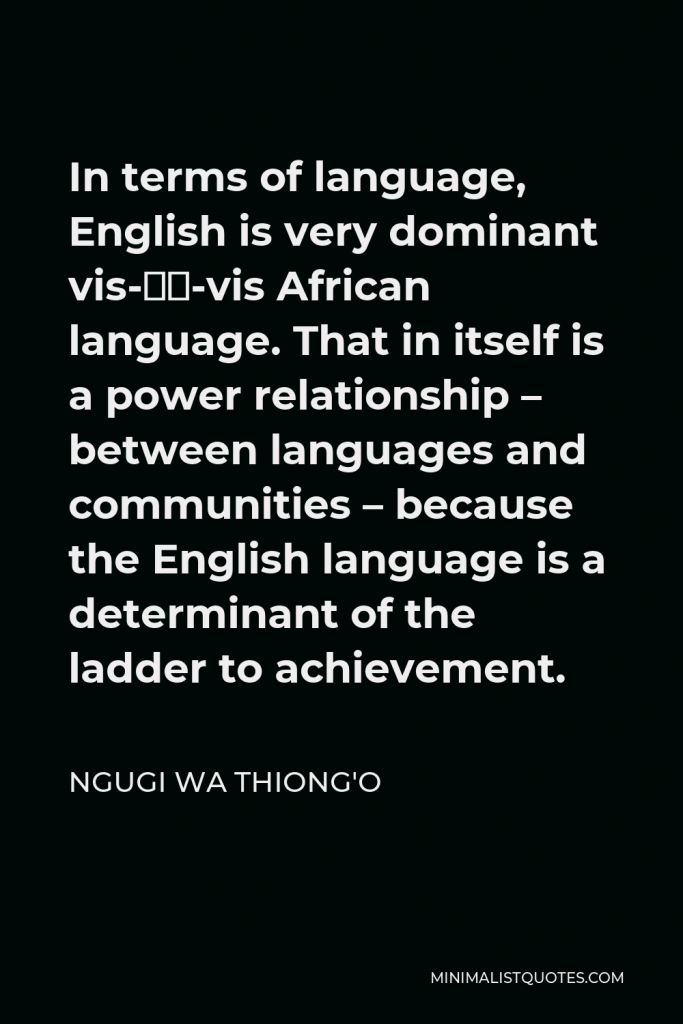

In terms of language, English is very dominant vis-Ã-vis African language. That in itself is a power relationship – between languages and communities – because the English language is a determinant of the ladder to achievement.
NGUGI WA THIONG'O -





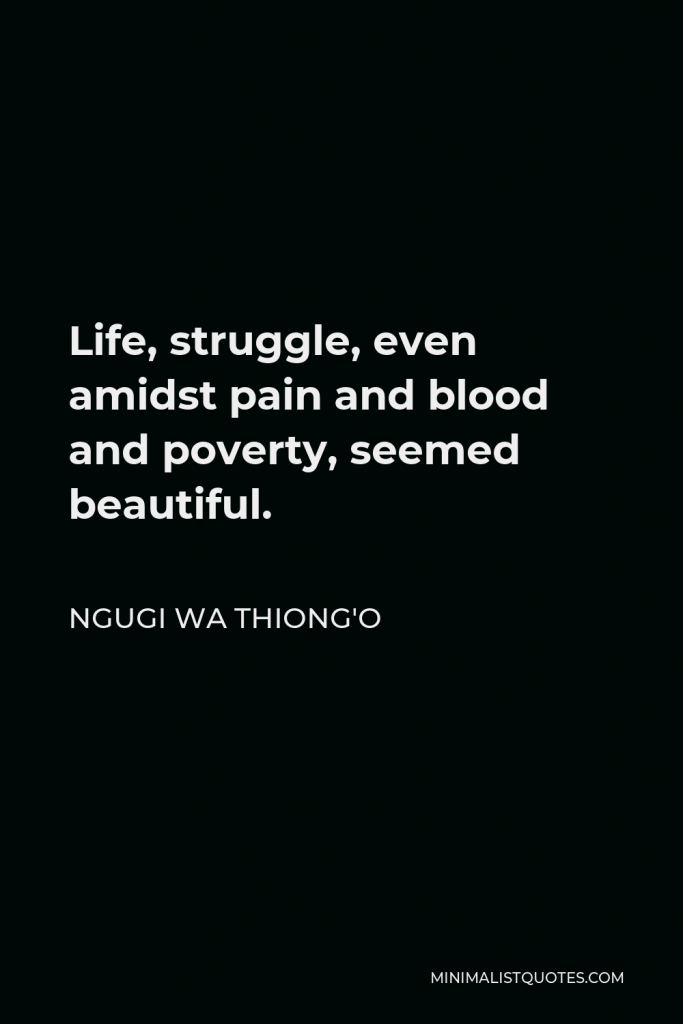

Life, struggle, even amidst pain and blood and poverty, seemed beautiful.
NGUGI WA THIONG'O -





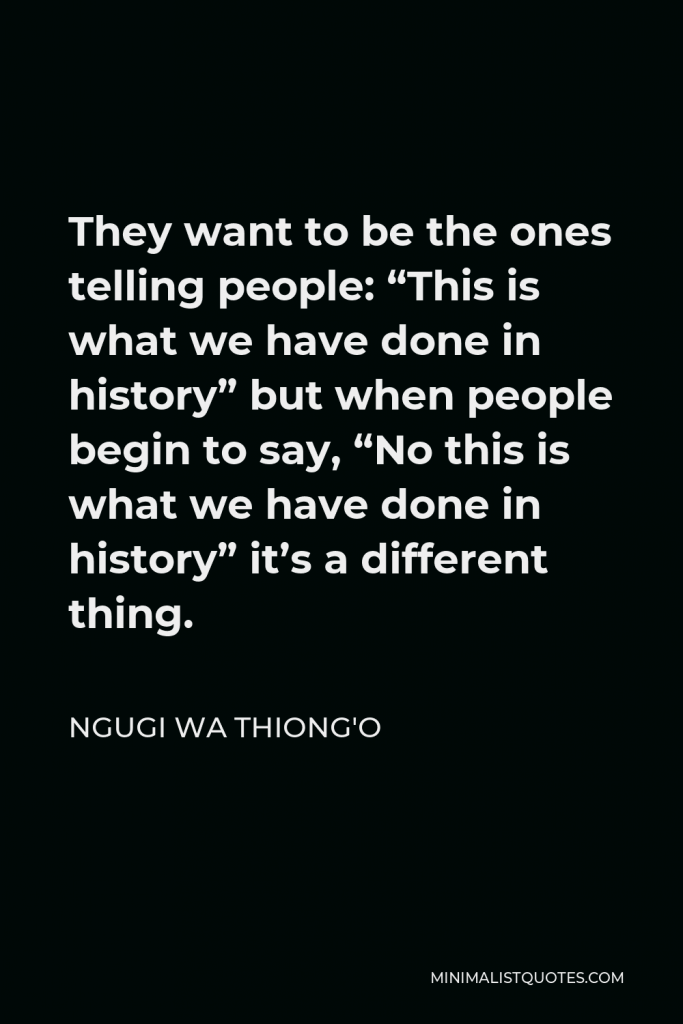

They want to be the ones telling people: “This is what we have done in history” but when people begin to say, “No this is what we have done in history” it’s a different thing.
NGUGI WA THIONG'O -





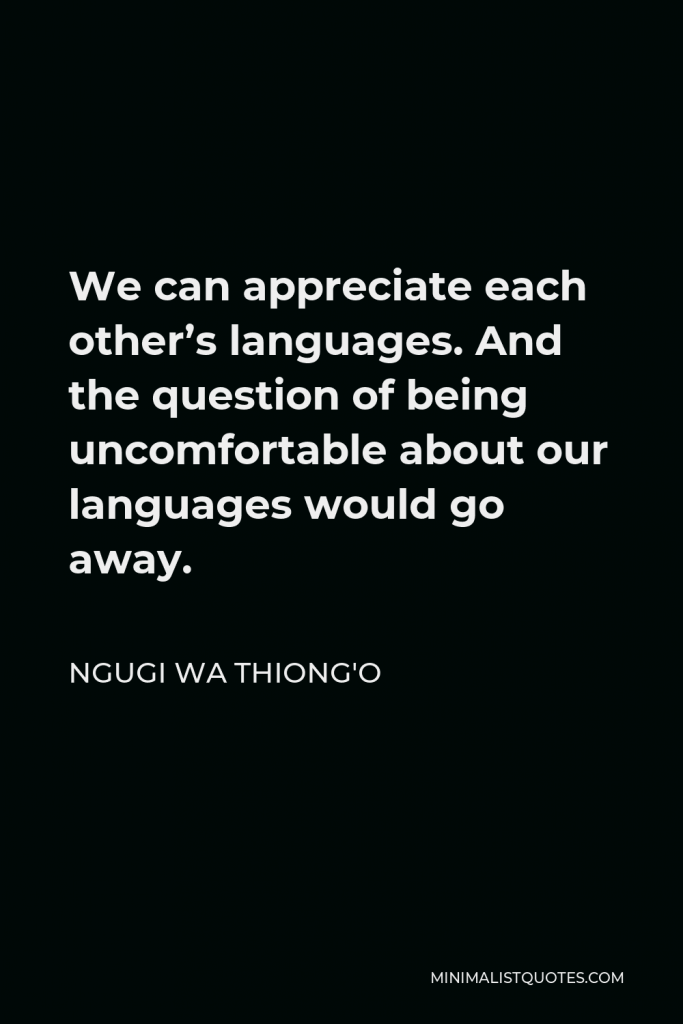

We can appreciate each other’s languages. And the question of being uncomfortable about our languages would go away.
NGUGI WA THIONG'O -





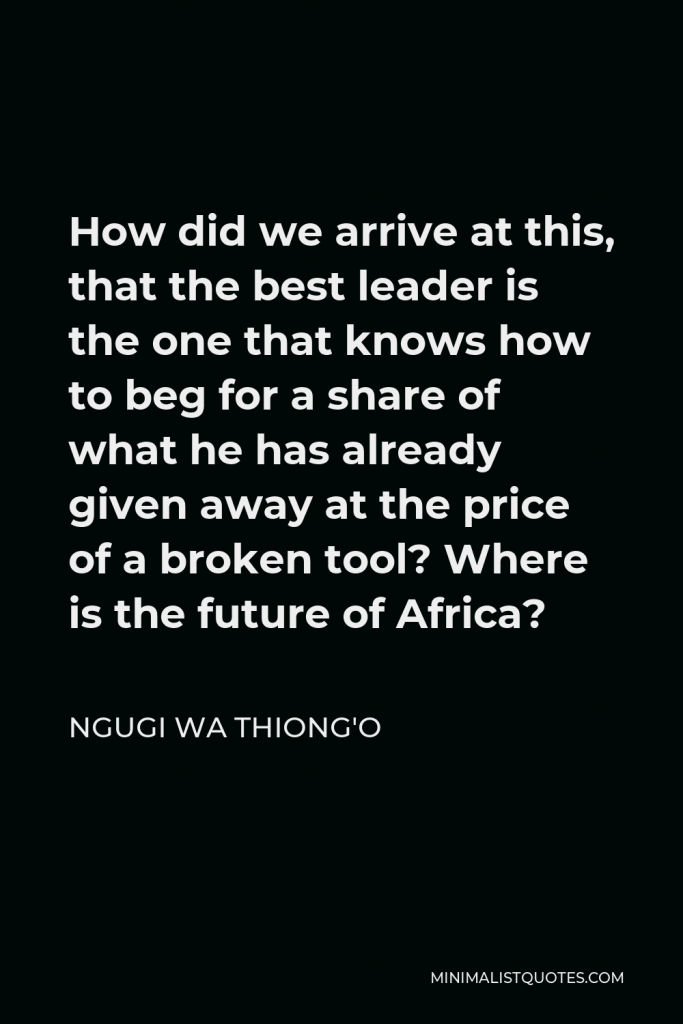

How did we arrive at this, that the best leader is the one that knows how to beg for a share of what he has already given away at the price of a broken tool? Where is the future of Africa?
NGUGI WA THIONG'O -





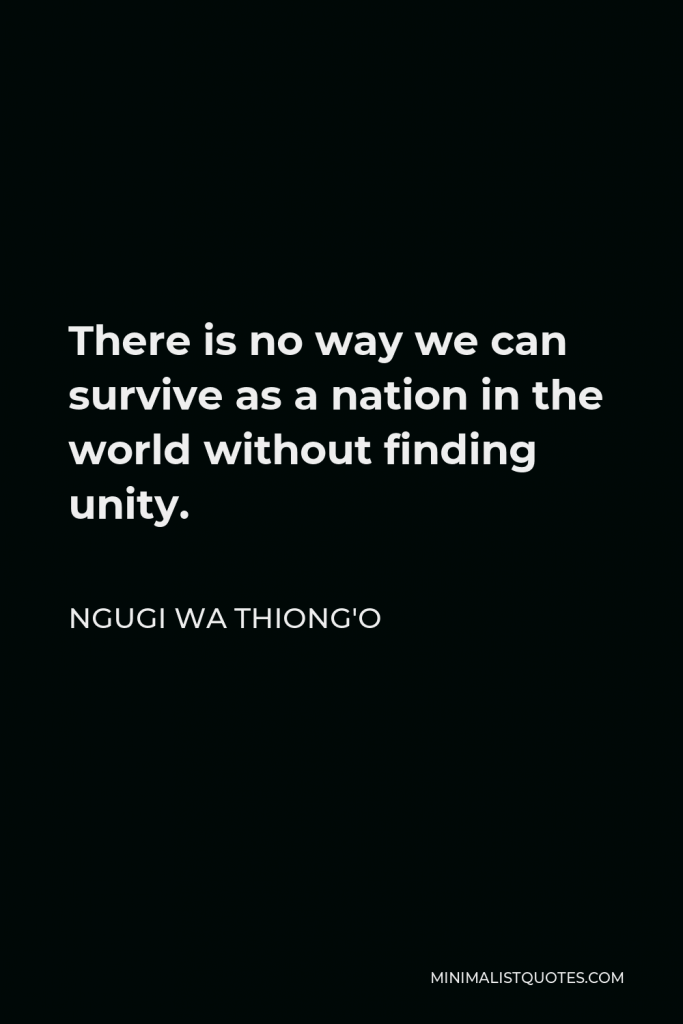

There is no way we can survive as a nation in the world without finding unity.
NGUGI WA THIONG'O -





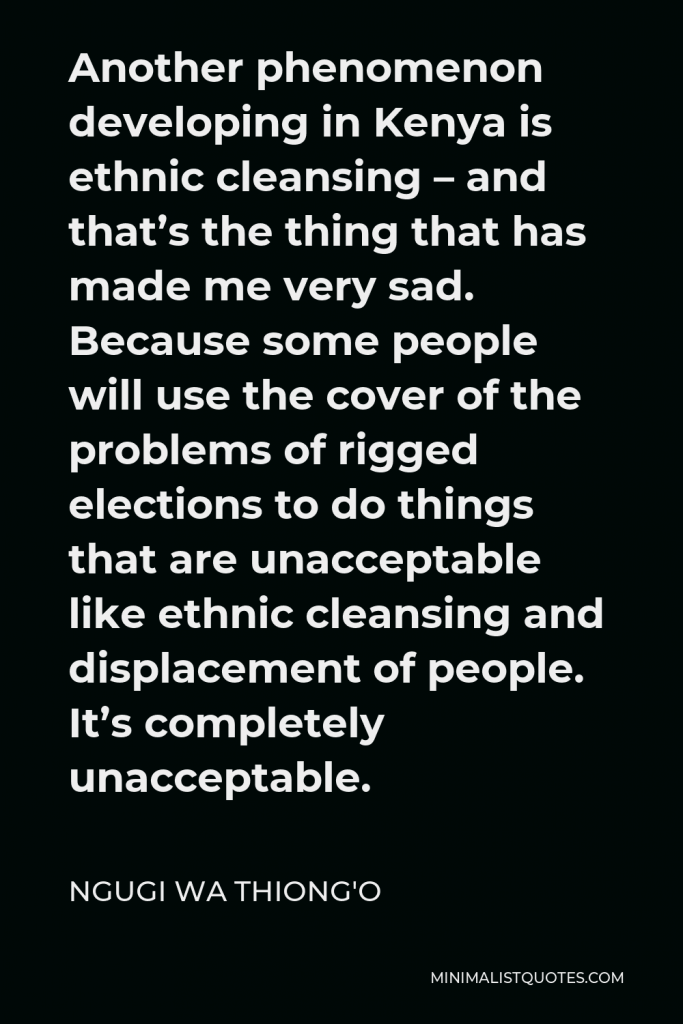

Another phenomenon developing in Kenya is ethnic cleansing – and that’s the thing that has made me very sad. Because some people will use the cover of the problems of rigged elections to do things that are unacceptable like ethnic cleansing and displacement of people. It’s completely unacceptable.
NGUGI WA THIONG'O
